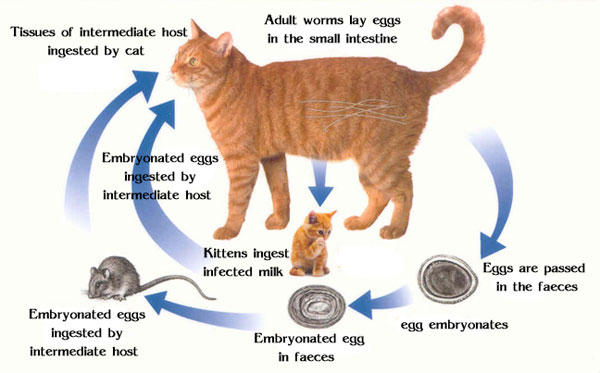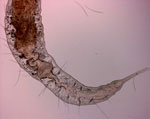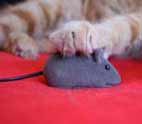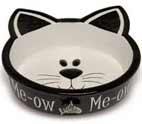Cat Worms
What Are They?
Cat worms are very unpleasant and not something most of us pet owners like to spend much time thinking about!
However it should be something that every cat owner needs to consider. They can be controlled with a good de-wormer tablet as part of your regular cat care plan.
If you want to know more about controlling worms in cats then you will find much of the information you need here.
All cats will probably have some type of worms living inside them at one time of another, it is virtually impossible for a cat to stay completely worm free its whole life. The problem is realising when your cat does have worms as often they can go unnoticed by the owner for quite some time.
The best way to ensure that your cat is worm free most of the time is to use a regular cat dewormer treatment to kill off the adult worms.

Types of Cat Worms
There are at least five main types of worms in cats which can affect your pet. However some are more prolific in certain parts of the world than others.
Roundworms - these worms can grow up to 10cm long and the eggs can remain active for many years in the environment. Cats can either be infected directly by picking up the eggs or from larvae living on mice or rats.
These cat worms can infest the digestive tunnel and steal nourishment from the cat's food, meaning that the cat is not getting all the goodness from the food that they need.
Signs of infestations are: intermittent diarrhea and vomiting and a pot belly in a young cat. However one of the main signs is a dull lifeless coat.

Tapeworms - these are normally transmitted to your cat via fleas or lice. They often go unnoticed by a cat owner for some time as there are no obvious symptoms, however there may be occasional tummy upsets and nervous symptoms.
They are visible to the naked eye and when fresh look like white segments of flat rectangular pieces. However after a while, they turn more yellow and look like grains of rice.
Hookworms - these worms in cats are normally found in more humid areas of the world. If left untreated they can cause severe anaemia and even death. This is because they secrete toxins which prevent the blood from clotting so that they can feed on the blood. They are not visible to the naked eye.
Lungworms - the main symptoms of this infestation is as the name suggested coughing. In a light infestation the cough may be so slight that the owner will not notice, however if the cat has other medical problems the illness may be more severe. However, it is rarely fatal.
Heartworms - Cats are most at risk from these types of cat worms in the tropics but cases have been found all over and even New York State. The cats become infected by gnats or mosquitoes which transmit the minute larvae.
The adult worms in cats live in the ventricles of the heart and can go unnoticed if only a few worms are present. However as they increase the cat will suffer symptoms such as coughing, general weakness, disinclination to play and rapid breathing. This is treatable though with a special medication.
Flukes - This is another type of worm similar to tapeworm and is also flat in appearance. The leaf shaped liver fluke in cattle and sheep in the UK are not considered to be dangerous to cats. However the Liver fluke found in the USA, Caribbean Islands, South America. Malaysia and Nigeria is reported to cause Lizard poisoning.
This means that small lizards, snails and other small crustaceans can become infected and if eaten by a cat will cause listlessness, fever, jaundice, diarrhoea, vomiting and emaciation.
How And When To Treat
Find out how and when to protect your kitty from pet worms by choosing a good cat dewormer, on the next page.






